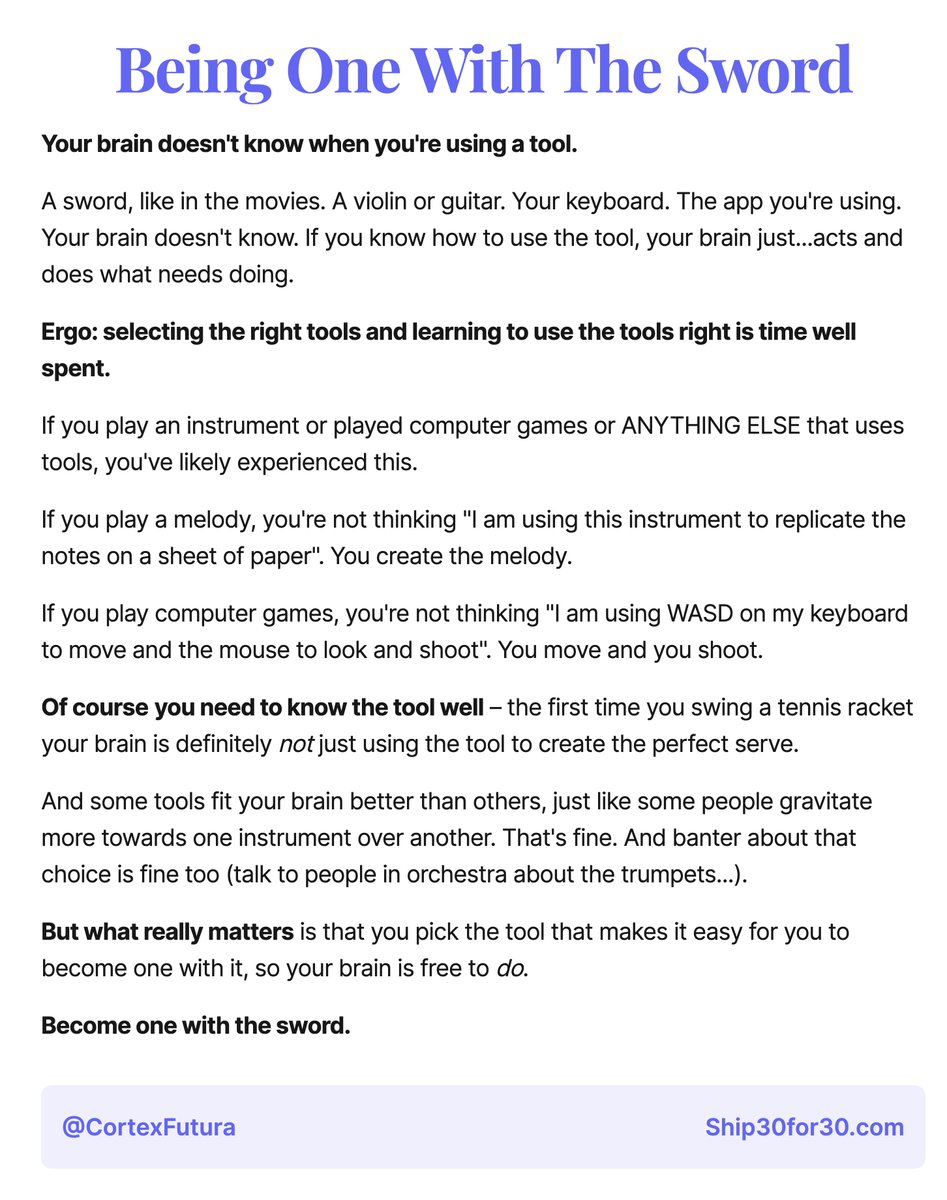
Personal Knowledge Management is a limiting term.
What you actually want to get good at is KnowledgeOps.
Let me explain.
What you actually want to get good at is KnowledgeOps.
Let me explain.

I dislike the term Personal Knowledge Management.
I find it to be limiting and too static. It conjures up images of shuffling around books on a shelf, sorting them for easier access. Important, but not enough.
Instead, I think we should think about the whole process.
I find it to be limiting and too static. It conjures up images of shuffling around books on a shelf, sorting them for easier access. Important, but not enough.
Instead, I think we should think about the whole process.
In software development the term DevOps describes
"a set of practices intended to reduce the time between committing a change to a system and the change being placed into normal production, while ensuring high quality" (Bass et al. 2015)
This is what we actually want.
"a set of practices intended to reduce the time between committing a change to a system and the change being placed into normal production, while ensuring high quality" (Bass et al. 2015)
This is what we actually want.
A process that takes us from learning something new to actually using it effectively as efficiently as possible.
Too often Personal Knowledge Management gets stuck at the note-taking stage. Or even earlier, where we focus on gathering knowledge, ingesting into our PKM system.
Too often Personal Knowledge Management gets stuck at the note-taking stage. Or even earlier, where we focus on gathering knowledge, ingesting into our PKM system.
But what do we do with it? Too often very little.
We need to shift the conversation.
We need to shift the conversation.
We need to get better at the whole knowledge pipeline. Gathering knowledge and filtering it. How to store what is relevant, through memorization or writing it down. Retrieving what we know. And then applying it when we make decisions, solve problems, or make sense of the world.
Don't just "manage" your knowledge. Make sure you have a way to use it, too.
• • •
Missing some Tweet in this thread? You can try to
force a refresh






